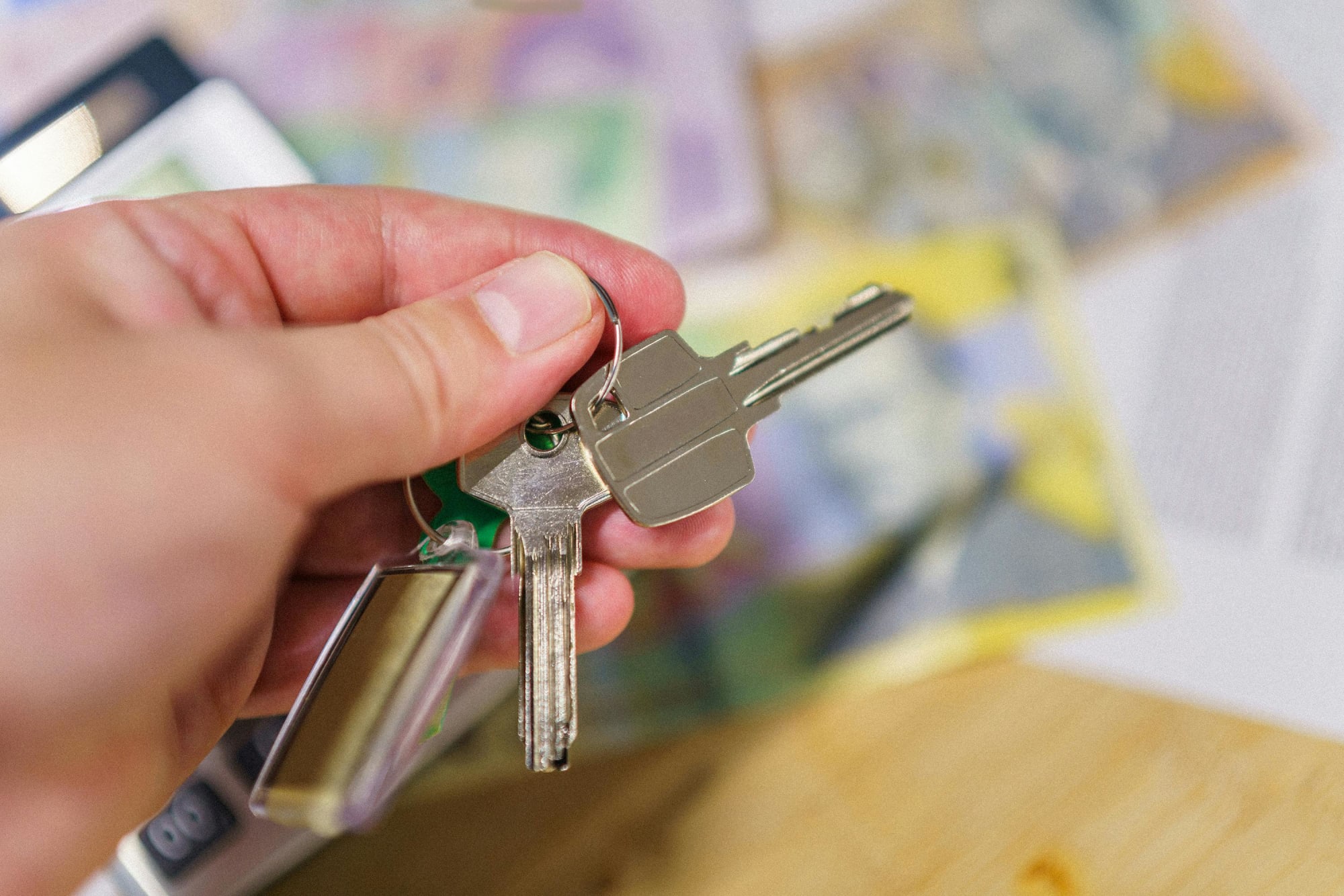Borrow
Crowdsourcing is the new loans alternative – here’s what you need to know
Borrow
Crowdsourcing is the new loans alternative – here’s what you need to know
Crowdfunding platforms have seen a huge increase in the amount of funds raised for individual and business causes in recent years. Some have even taken to these platforms to borrow money from willing backers or investors.
Crowdsourcing is the new loans alternative – here’s what you need to know
Crowdfunding platforms have seen a huge increase in the amount of funds raised for individual and business causes in recent years. Some have even taken to these platforms to borrow money from willing backers or investors.

Here’s what you need to know about generating funds through crowdsourcing.
What is crowdsourcing?
By definition, crowdsourcing is the practice of obtaining certain needs by soliciting from a larger population. Some things that may be crowdsourced are goods, services, information and funding.
Crowd financing, in particular, is popular for both business and charity purposes.
In fact, crowdfunding has seen an increase in activity in recent years – with start-ups and entrepreneurs using crowdfunding platforms to secure capital.

Most people use “crowdfunding” and “crowd-sourced funding” interchangeably, but the Australian government formally introduced a scheme that differentiated between the two in 2017.
Crowdfunding v crowdsourced funding
Business Victoria defines crowdfunding and crowd-sourced funding (CSF) as follows:
Crowdfunding refers to funding platforms that artists and entrepreneurs use to gather financial support for their projects. Campaigners typically use crowdfunding platforms such as Kickstarter and Indiegogo.
Crowdsourced funding is a government scheme launched in 2017. It is a new way for small and medium-sized businesses to gather funding support from the public. The Australian Securities and Investments Commission (ASIC) administers the laws surrounding CSFs. ASIC also requires platforms that offer CSFs to hold an Australian Financial Services Licence (AFSL).
Who are involved in crowdsourcing?
There are three parties involved in crowdsourcing to successfully raise capital:
- Campaigner(s) refer to the individual or group that starts the campaign. This is the party that requires financing for its project or business venture.
- Backers, donors or patrons refer to the people who pledge financial support for the project or business campaign. Depending on the type of campaign, backers may be considered lenders, donors or investors.
- Platform refers to the intermediary or company that bridges the campaigners and potential backers. Depending on the type of funding campaign the platform hosts, the underlying company may be required to secure an AFSL.
Types of crowdsourced funding
Individuals and businesses may launch funding campaigns for profit or charity.
For-profit crowdfunding
- Equity crowdsourcing
Campaigners that launch equity crowdfunding campaigns typically aim to establish a business using the collected money. Backers who provide financial support for an equity crowdfunding campaign are generally given an equity stake proportional to the amount they provided.
It’s similar to buying company shares from the stock market – with the exception that the company has not yet launched.
Platforms that support equity campaigns must have an AFSL to operate to avoid breaking the law. - Loan crowdsourcing
Some platforms allow campaigners to access funding and treat the collected monies as a form of loan.
This means the campaigner and backers must agree on terms, interest rate and repayment frequency. - Rewards-based crowdsourcing
This type of campaign is popular with entrepreneurs because they don’t need to share ownership of the company. They also won’t need to pay back any money to their backers – just the “reward” that was selected during the campaign.
Campaigners may simply ask potential backers to pledge specific dollar amounts in exchange for small to large rewards. For instance, they may simply give discounts for smaller pledges and a sample of the product for higher pledged amounts.
The crowdfunding site “Kickstarter” has pulled off many rewards-based crowdsourcing campaigns successfully.
Not-for-profit crowdfunding
This type of crowdfunding refers to campaigns that are specifically launched for charitable causes.
Campaigns may be created by any individual or institution to generate donations for their supported cause.
About the author

About the author


Loans
Australia’s credit pivot: Mortgage enquiries hit a three‑year peak as households lean on plastic — what lenders and fintechs must do next
Australian home loan interest has rebounded even as households lean harder on cards and personal loans — a classic late‑cycle signal that demands sharper risk, pricing and AI executionRead more

Loans
Trust is the new yield: Why brokers win when credibility compounds
In a market where products look interchangeable, credibility has become the most defensible asset in mortgage broking. With broker channel share hitting record highs and AI reshaping client ...Read more

Loans
Mortgage Relief Window: How Australia’s Lenders Are Rewiring Risk and Growth at a Three‑Year Lull
Australia’s mortgage stress has eased to its lowest level since early 2023, creating a rare—likely brief—window for lenders, brokers and fintechs to reset risk and rebuild growth. This case study ...Read more

Loans
Why ANZ’s tougher stance on company-borrowed home loans matters: A case study in risk recalibration, competition, and what CFOs should do next
ANZ has tightened mortgage credit parameters for loans where a company or trust is the borrower—an apparently narrow policy tweak with wide operational consequences. It signals a broader recalibration ...Read more

Loans
Mortgage 2026: Australia’s share‑of‑wallet war will be won on switching, data rights and AI discipline
The defining feature of Australia’s 2026 mortgage market won’t be house prices; it will be switching velocity. With competition reforms sharpening the Consumer Data Right, lenders and brokers that ...Read more

Loans
Mortgage remorse reshapes the game: Australia's lending squeeze set to redefine banking and household demand
A growing cohort of Australians is rethinking recent home loan decisions as higher repayments collide with household budgets. This isn’t just consumer angst; it’s an economy-wide red flag for lenders, ...Read more

Loans
Aussie mortgage game-changer: Brokers dominate while AI sharpens the edge
Mortgage brokers now originate roughly three in four new Australian home loans, a structural shift that rewires bank economics, product strategy and customer acquisition. MFAA data shows broker market ...Read more

Loans
Fixing the future: How brokers and lenders can turn rate-hike anxiety into strategic advantage
Australian borrowers are leaning into short-term fixed loans as rate uncertainty lingers, shifting risk from households to lenders and their funding partners. That creates a narrow window for broker ...Read more

Loans
Australia’s credit pivot: Mortgage enquiries hit a three‑year peak as households lean on plastic — what lenders and fintechs must do next
Australian home loan interest has rebounded even as households lean harder on cards and personal loans — a classic late‑cycle signal that demands sharper risk, pricing and AI executionRead more

Loans
Trust is the new yield: Why brokers win when credibility compounds
In a market where products look interchangeable, credibility has become the most defensible asset in mortgage broking. With broker channel share hitting record highs and AI reshaping client ...Read more

Loans
Mortgage Relief Window: How Australia’s Lenders Are Rewiring Risk and Growth at a Three‑Year Lull
Australia’s mortgage stress has eased to its lowest level since early 2023, creating a rare—likely brief—window for lenders, brokers and fintechs to reset risk and rebuild growth. This case study ...Read more

Loans
Why ANZ’s tougher stance on company-borrowed home loans matters: A case study in risk recalibration, competition, and what CFOs should do next
ANZ has tightened mortgage credit parameters for loans where a company or trust is the borrower—an apparently narrow policy tweak with wide operational consequences. It signals a broader recalibration ...Read more

Loans
Mortgage 2026: Australia’s share‑of‑wallet war will be won on switching, data rights and AI discipline
The defining feature of Australia’s 2026 mortgage market won’t be house prices; it will be switching velocity. With competition reforms sharpening the Consumer Data Right, lenders and brokers that ...Read more

Loans
Mortgage remorse reshapes the game: Australia's lending squeeze set to redefine banking and household demand
A growing cohort of Australians is rethinking recent home loan decisions as higher repayments collide with household budgets. This isn’t just consumer angst; it’s an economy-wide red flag for lenders, ...Read more

Loans
Aussie mortgage game-changer: Brokers dominate while AI sharpens the edge
Mortgage brokers now originate roughly three in four new Australian home loans, a structural shift that rewires bank economics, product strategy and customer acquisition. MFAA data shows broker market ...Read more

Loans
Fixing the future: How brokers and lenders can turn rate-hike anxiety into strategic advantage
Australian borrowers are leaning into short-term fixed loans as rate uncertainty lingers, shifting risk from households to lenders and their funding partners. That creates a narrow window for broker ...Read more








